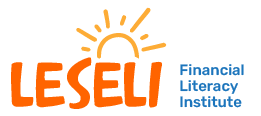

2024 is the second year in which LFLI is celebrating April as the financial literacy month in collaboration with the NUL in Lesotho. Financial literacy month is not only celebrated, but it is an eye opener to all and beginning of the financial literacy journey to most of us.
April is not just another month; it’s Financial Literacy Month – an empowering journey towards financial well-being and prosperity.
Financial literacy is not just about numbers; it’s about empowering individuals and communities to build a secure future. Whether you’re a student, a professional, or a retiree, there’s something for everyone during Financial Literacy Month.
Don’t miss out on this incredible opportunity to enhance your financial skills and shape a brighter tomorrow for yourself and your loved ones.
- Are you ready to take charge of your financial future?
- Do you want to gain the knowledge and skills to make informed decisions about money matters?
Then join us in celebrating Financial Literacy Month throughout April, a month filled with several events, posts, tips, and articles intended to help you.
Take the following practical steps to enhance your financial literacy skills this year.
- Educate Yourself by reading books, articles, and reputable websites on personal finance topics such as budgeting, saving, investing, and managing debt. There are many resources available, including online courses and workshops, that can help in building a solid foundation of financial knowledge. Self-studying with the use of books, websites, sharing the knowledge with family and friends on these topics is a simple way to improve your financial knowledge.
- Set Financial Goals: Define your short-term, medium-term, and long-term financial goals. Short-term goals provide immediate targets to focus on, keeping individuals accountable and allowing for regular progress checks. Medium-term goals offer a balance between short-term and long-term objectives, helping individuals plan for upcoming milestones like buying a house or starting a family. Long-term goals, such as retirement planning, provide direction for future financial security and require consistent saving and investing over an extended period. Overall, having a mix of short, medium, and long-term goals ensures a well-rounded financial plan that addresses both immediate needs and future aspirations. Whether it’s saving for a vacation, buying a house, or planning for retirement, having clear objectives will help you stay focused and motivated.
- Create a Budget: Track your income and expenses to understand where your money is going each month. Use a simple spreadsheet to categorize your spending and identify areas where you can cut back or reallocate funds towards your goals. By creating and sticking to a budget, individuals can gain control over their finances, reduce financial stress, and work towards achieving their short-term and long-term financial goals.
- Build an Emergency Fund: Aim to save enough money to cover at least three to six months’ worth of living expenses in case of unexpected emergencies, such as job loss or medical expenses. Start by consistently setting aside a small amount each month until you reach your target. It is wise to establish and maintain a robust emergency fund to provide financial security and peace of mind in times of unexpected hardships.
- Manage Debt Wisely: Debt is not always the optimal solution for every financial difficulty. While it can provide immediate relief or access to essential resources, relying too heavily on debt can exacerbate financial problems in the long run. In many instances, alternative strategies like seeking additional employment or waiting few months while adjusting budget can be undertaken to manage financial challenges. In a case where already indebted, plan to pay off any outstanding debt, starting with high-interest loans or credit cards first. Consider refinancing options to lower your interest rates and accelerate your debt repayment.
- Invest for the Future: Individuals are encouraged to start investing early to take advantage of compound interest and grow wealth over time. Small contributions made consistently over time can accumulate into significant wealth due to the compounding effect. Starting early gives investors a valuable start in building their investment portfolios. Investing can be complex, especially for beginners. Seeking guidance from a financial advisor can provide valuable insights and personalized recommendations tailored to specific financial goals, risk tolerance, and time horizon.
- Understand Financial Products: Familiarize yourself with various financial products and services, including current and savings accounts, credit cards, loans, insurance, and retirement plans. By familiarizing yourself with various financial products and comparing their features, fees, and terms, you can make informed decisions that support your financial goals and help you build a solid financial foundation. Always compare fees, interest rates, and terms to make informed decisions that align with your financial goals and choose products with competitive rates and favourable terms that offer the best value for your money. Pay attention to any fine print or hidden fees that may impact the overall cost of the product.
- Stay Informed: By staying informed about financial news and trends through reputable publications and online sources, individuals can adapt to changing economic conditions, and proactively manage their finances. This includes changes in interest rates set by the central banks, updates on tax laws, and shifts in economic indicators such as unemployment rates, inflation, and GDP growth. Being aware of financial news and trends enables individuals to anticipate how these developments may impact their savings, investments, debt, and overall financial well-being. For example, rising interest rates negatively impact all types of borrowings, while changes in tax laws could impact income tax liabilities and retirement planning strategies.
- Practice Good Financial Habits: Failure to change the existing financial habits is the worst enemy prohiting individuals to meet their financial goals. Changing financial habits offer a wide range of advantages that can positively impact every aspect of your financial life, from stability and security to freedom and opportunity. Develop healthy financial habits, such as living within your means, avoiding impulse purchases, saving regularly, and reviewing your financial plan periodically to adjust as needed.
- Seek Professional Advice: Financial advisors and planners can help in creating financial plans specific to the owner, and guide in making informed decisions. Don’t hesitate to seek guidance from financial professionals, such as certified financial planners or advisors registered with the Central Bank of Lesotho, especially for complex financial matters or major life events like buying a house or planning for retirement. Their proactive guidance can help you stay on track towards achieving your objectives and adapt to evolving financial landscapes.
By taking proactive steps towards financial literacy and implementing practical strategies, you can pave the way towards a brighter financial future.
Stay tuned for more details and get ready to unlock the keys to financial success this April, our celebration starts at the NUL and LUCT on 4th April and proceed to Ha-Mafafa, Market, Kingsway Maseru.
